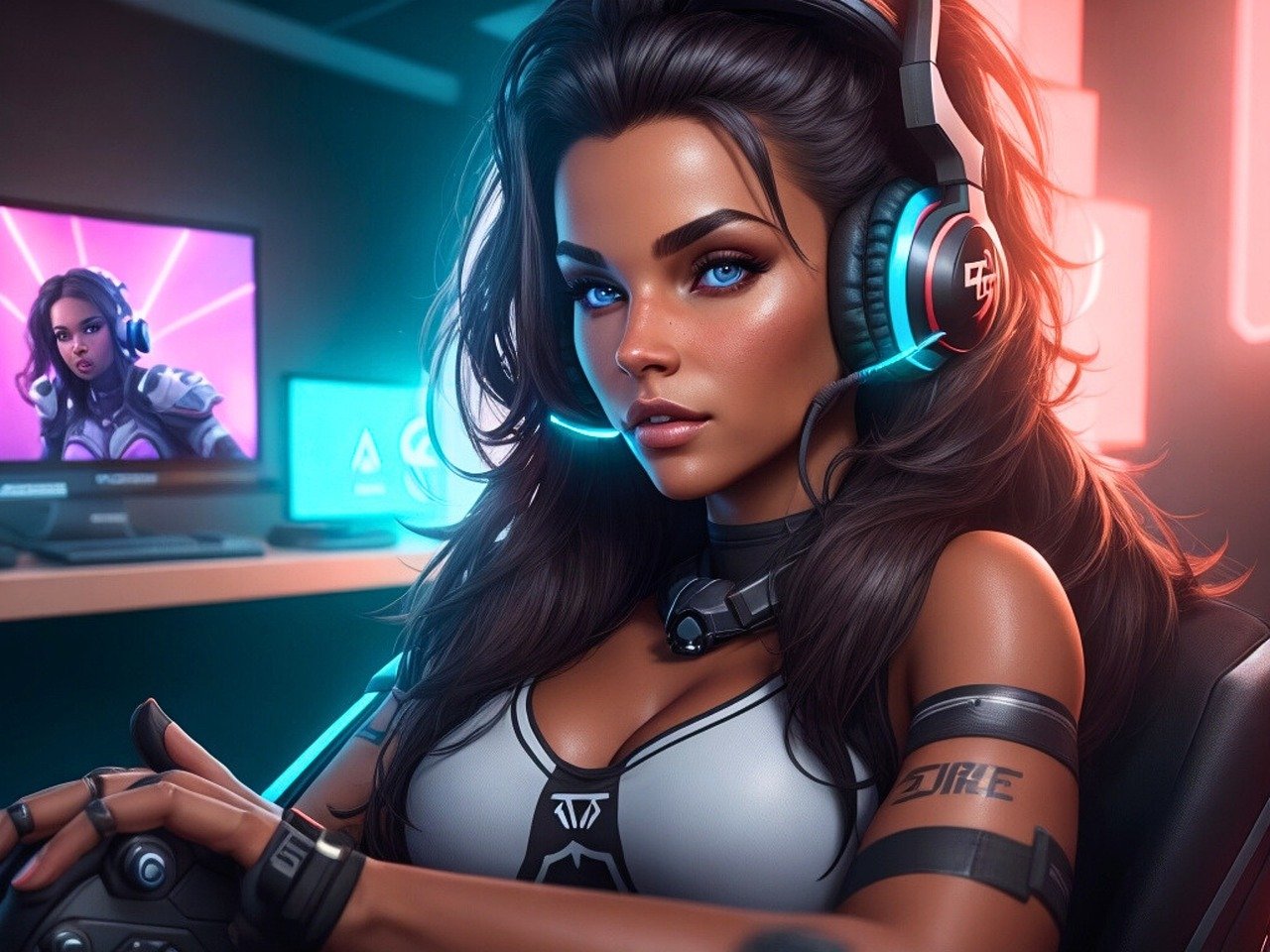Artificial intelligence (AI) has altered numerous industries, including gaming. AI, with its ability to process massive quantities of data and make real-time choices, is altering the gaming scene in a variety of ways. In this article, we look at five major ways AI is changing gaming.
What is Artificial Intelligence in Gaming?
AI for gaming is the incorporation of artificial intelligence techniques and technology into video games to produce more dynamic, responsive, and engaging gameplay experiences. It entails programming computer-controlled characters (non-player characters or NPCs) and entities in the game environment to behave intelligently, make decisions, and interact with the player and the game world in a realistic way. Consider it a virtual mind for video game characters and components, bringing the digital universe to life and making it interactive in the same way that you would engage with actual creatures.

You know those opponents in a game who appear to adapt and challenge you differently every time? That’s AI at work: creating opponents who can think on their feet.
AI gaming has been gaining popularity for quite some time. Just look at Cortana from Halo. That’s hardly the only game featuring artificial intelligence. Several other games (such as Detroit: Becoming Human) are primarily about AI and Androids.
Also Read: How to Choose the Best AI Model for Your Application?
What are the advantages of AI in games?
1. Enhanced Player Experience.
Creating lifelike situational developments as you advance through the game adds excitement to the experience. Increasing the complexity of AI games ensures that players remain engaged. With the emergence of AI gaming gadgets, gamers want an immersive experience across several devices.
2. Adaptive Gameplay.
Algorithms for artificial intelligence can monitor player behavior, learning patterns, mechanics, game pace, and other criteria to guarantee that players are always challenged and avoid monotony.
3. Realistic Non-Player Characteristics
Game AI is most commonly utilized with non-player characters (NPCs). These are gaming characters who behave intelligently, as if they were controlled by human players. These characters’ behavior is decided by AI algorithms, which adds depth and complexity to the game, making it more appealing to gamers.
4. Procedural content generation
AI algorithms can create game content, such as difficulty levels, missions, maps, and tasks. This lowers development costs and time while giving players with unlimited variations and unique experiences each time.

Also Read: Top 7 Benefits of Using AI in Software Testing
5 Ways Artificial intelligence is Revolutionizing the Online Gaming Industry
1. Enhanced Gaming Experiences:
AI enhances the overall gaming experience by creating more immersive and realistic surroundings. One of the most significant breakthroughs is AI-generated material, such as procedural generation, which generates dynamic and different gaming environments. AI systems may analyze player behavior and provide unique material based on individual tastes, guaranteeing that no two gaming experiences are alike.
Furthermore, AI-powered NPCs (non-player characters) are getting more clever and realistic. These NPCs have adaptive behaviours, respond realistically to the player’s actions, and can even learn from their mistakes. This contributes to a more demanding and exciting gameplay experience, as players encounter opponents who continually adapt and change.
2. Customized Player Experiences:
AI systems can analyze player data and behavior to deliver highly tailored experiences. This level of customisation boosts player pleasure and helps them discover new games they’ll like.
Furthermore, AI may dynamically modify the game’s difficulty level based on the player’s ability and performance. This ensures that players are never overwhelmed or bored, as the game constantly adapts to their talents.
3. Intelligent Game Design:
AI is transforming game creation by streamlining and automating specific portions of the design process. AI-powered technologies can help developers design and test game mechanisms, balance gameplay, and even build game narratives. This allows developers to iterate more rapidly and efficiently, which leads to better-designed games.
Machine learning algorithms can also analyze massive volumes of game data to uncover patterns and trends, allowing creators to improve gaming mechanics, level design, and monetization tactics. AI-powered analytics provide significant insights into player activity, enabling creators to make data-driven decisions and create games that appeal to their target audience.
4. Realistic Graphics and Physics:
AI is pushing the limits of graphics and physics in gaming. Generative adversarial networks (GANs) can produce high-resolution textures, realistic lighting effects, and even lifelike character models. This enables developers to construct visually spectacular and engrossing gaming environments that were previously impossible.
Furthermore, AI algorithms may replicate complicated physics systems, increasing the realism of in-game interactions while also providing more dynamic and lifelike settings. This improves gameplay and immersion by generating realistic responses to player actions and ambient interactions.
5. Smart NPCs & Enemy AI:
AI is altering the behavior and intelligence of NPCs and opponent AI in games. Traditionally, NPCs had set pathways and restricted replies, making them predictable and less entertaining. However, AI-powered NPCs can now display complicated behaviors, making them more human-like and difficult to connect with. They can analyze and respond to player actions, change their strategies, and communicate using natural language processing.
AI developments assist both friendly and adversarial AI. AI-powered foes can learn and adapt while playing, making them deadly opponents. They can examine player strategies, exploit flaws, and strategize to create a more demanding and gratifying game.
Conclusion
AI is transforming the game industry in numerous ways. AI has a significant impact on gaming, from boosting gameplay experiences and personalizing player journeys to improving game design, graphics, and AI-driven NPCs. As AI advances, we should expect more unique and immersive gaming experiences in the future.








